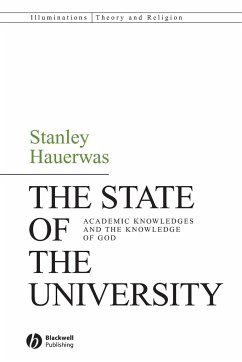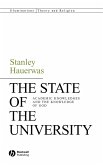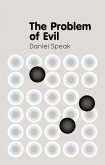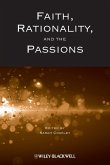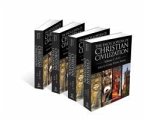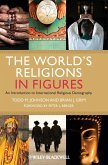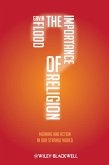In this book, controversial and world-renowned theologian, Stanley Hauerwas, tackles the issue of theology being sidelined as a necessary discipline in the modern university. It is an attempt to reclaim the knowledge of God as just that - knowledge.
The book is an attempt to reclaim the knowledge of God as just that - knowledge.
It is no secret that theology is no longer considered a necessary subject in the modern university. Why is it assumed that the kind of knowledge theology represents is in some fashion deficient when compared to other subjects? Hauerwas argues that theology is often excluded from the knowledges of the modern university because those knowledges are constituted by an understanding of time necessary to make economic and state realities seem inevitable. Yet it is precisely this difference that makes Christian theology, while being governed by a different understanding of time than that characteristic of the other disciplines of the university, an essential resource for the university to achieve its task - that is, to form people who are able to imagine a different world through critical and disciplined reflection.
Hauerwas subsequently challenges the domesticated character of much recent theology by suggesting how prayer and the love of the poor are essential practices that should shape the theological task. Hauerwas makes this case by conversing with figures as diverse as Luigi Giussani, David Burrell, Stanley Fish, Wendell Berry, Jeff Stout, Rowan Williams and Sheldon Wolin.
Hinweis: Dieser Artikel kann nur an eine deutsche Lieferadresse ausgeliefert werden.
The book is an attempt to reclaim the knowledge of God as just that - knowledge.
It is no secret that theology is no longer considered a necessary subject in the modern university. Why is it assumed that the kind of knowledge theology represents is in some fashion deficient when compared to other subjects? Hauerwas argues that theology is often excluded from the knowledges of the modern university because those knowledges are constituted by an understanding of time necessary to make economic and state realities seem inevitable. Yet it is precisely this difference that makes Christian theology, while being governed by a different understanding of time than that characteristic of the other disciplines of the university, an essential resource for the university to achieve its task - that is, to form people who are able to imagine a different world through critical and disciplined reflection.
Hauerwas subsequently challenges the domesticated character of much recent theology by suggesting how prayer and the love of the poor are essential practices that should shape the theological task. Hauerwas makes this case by conversing with figures as diverse as Luigi Giussani, David Burrell, Stanley Fish, Wendell Berry, Jeff Stout, Rowan Williams and Sheldon Wolin.
Hinweis: Dieser Artikel kann nur an eine deutsche Lieferadresse ausgeliefert werden.
"A first-order theologian turns his sights on one of the most influential institutions in the modern society: the university ... Lively reading." Books & Culture "This collection is sometimes frustrating ... and it raises more questions than it answers. Yet it ought to be read widely, and received as a gift to both the Church and the university. For anyone involved in the work of teaching, this book is a perfect invitation to think through questions of what we are doing and why." Church Times "One feels ... invited to ruminate alongside the author ... Truly, food for thought." Cresset "With characteristic conversational energy, Hauerwas asks his readers to take seriously the difference which those who confess the God of the gospel can bring to institutions of learning. The book grows out of the free, generous and lively wisdom of faith, and deserves to be widely debated." John Webster, King's College, Aberdeen "Positioning himself against Yale University President Richard Levin's defense of Liberal Education as a crucial source for "the preservation of individual freedom", Stanley Hauerwas asks the obvious but uncomfortable question, freedom for what? If students pass through the courses in the curriculum as consumers and sightseeers, they will replicate and extend the modern malaise of a life lived without reference to anything that makes its moments intelligible. If the university is to be more than a reflection of an atomized society, those who live in it, says Hauerwas, must ask two questions academics either avoid (here I am one of his examples) or answer with empty pieties: what is a university for and whom does it serve? It is the great merit of Hauerwas's book that it refuses to back away from these questions, even as it acknowledges the difficulty of giving a full and satisfying answer to them. A witty, learned , and very human meditation on the relationship between the factories of knowledge and the knowledge of God." Stanley Fish, Florida International University "This book by an eminent Christian theologian is provocative for thinking fruitfully about our troubled times. Hauerwas has a subtle, learned and compassionate mind, which he brings to bear on the secular state in which we live and on the secular knowledge produced in our universities to serve it. Non-Christians like myself will find reading this book a mind-widening experience." Talal Asad, CUNY "Whether one agrees or disagrees with some of the positions Hauerwas stakes out, reading his work is always a bracing intellectual experience - and a deeply Christian one. The State of the University proves no exception. With characteristic theological craftsmanship, humor, and passion, Hauerwas turns his sights on the contemporary university, in all its dignity, wrongheadedness, goodness, and confusion. Anyone interested in the fate of theological knowledge in contemporary society, anyone interested in serious education (or lack thereof) in liberal democracies, anyone who cares for the mission of the church in the twenty-first century will profit considerably from reading and rereading this book." Thomas Albert Howard, Gordon College, Oxford

